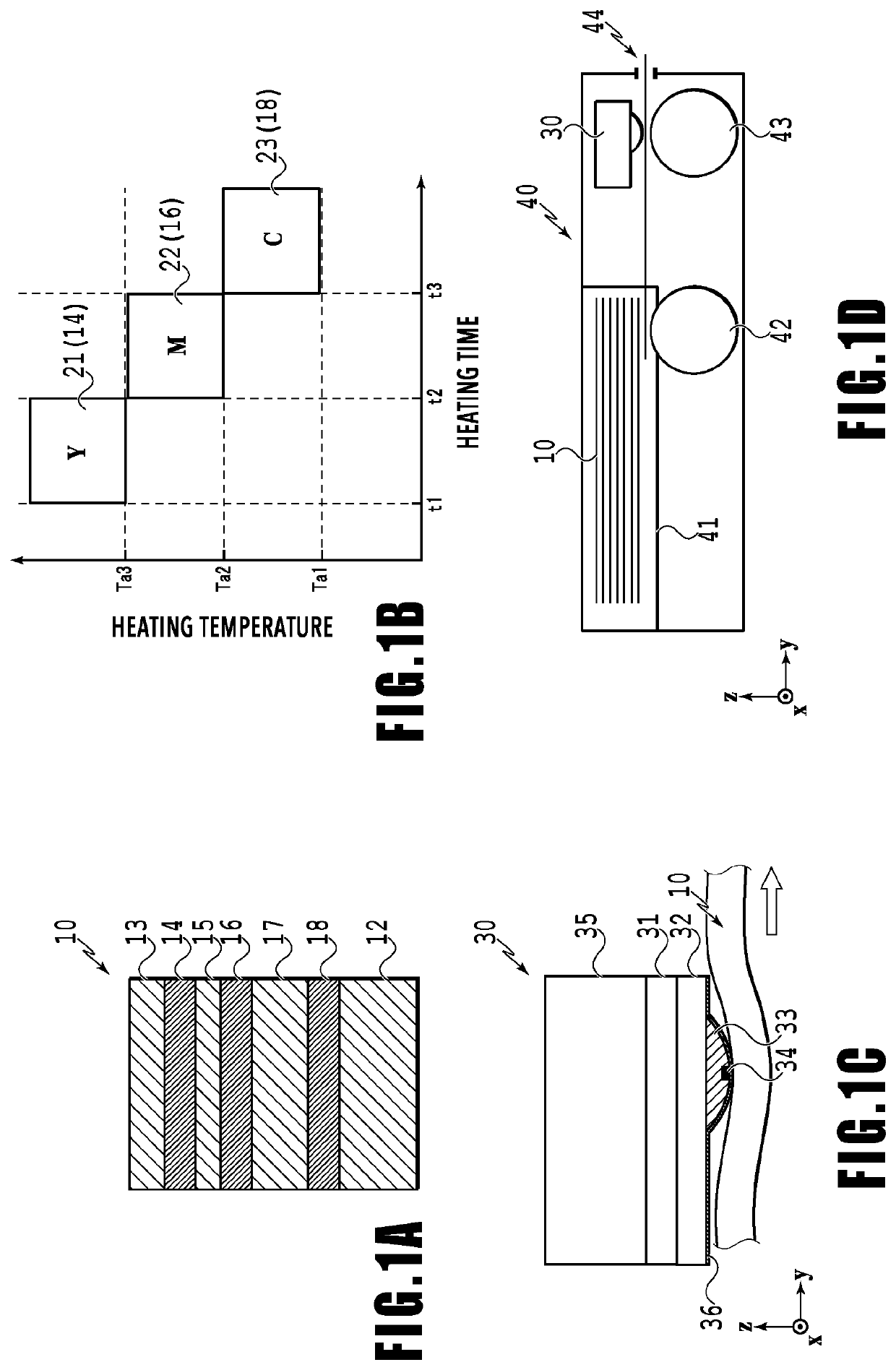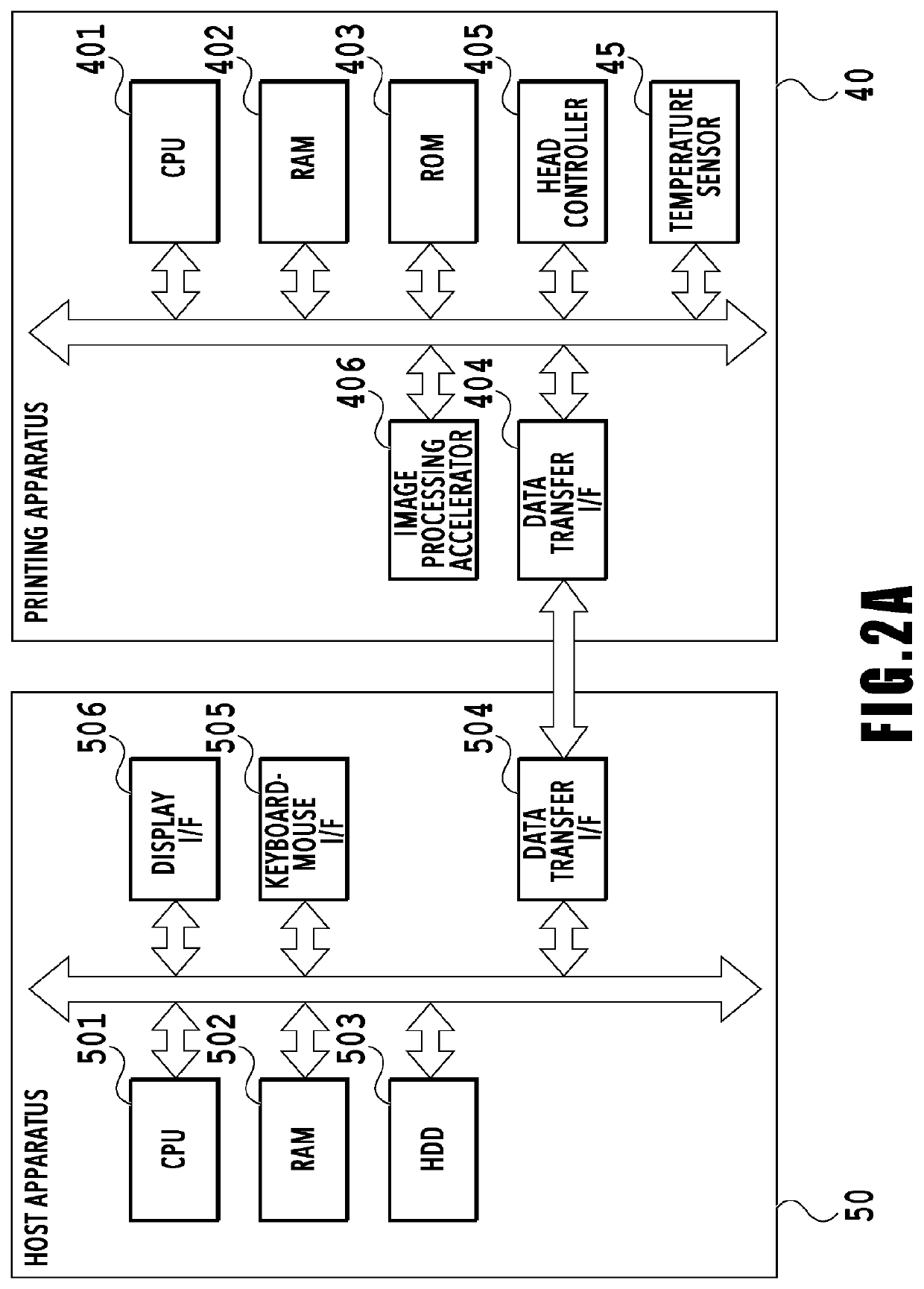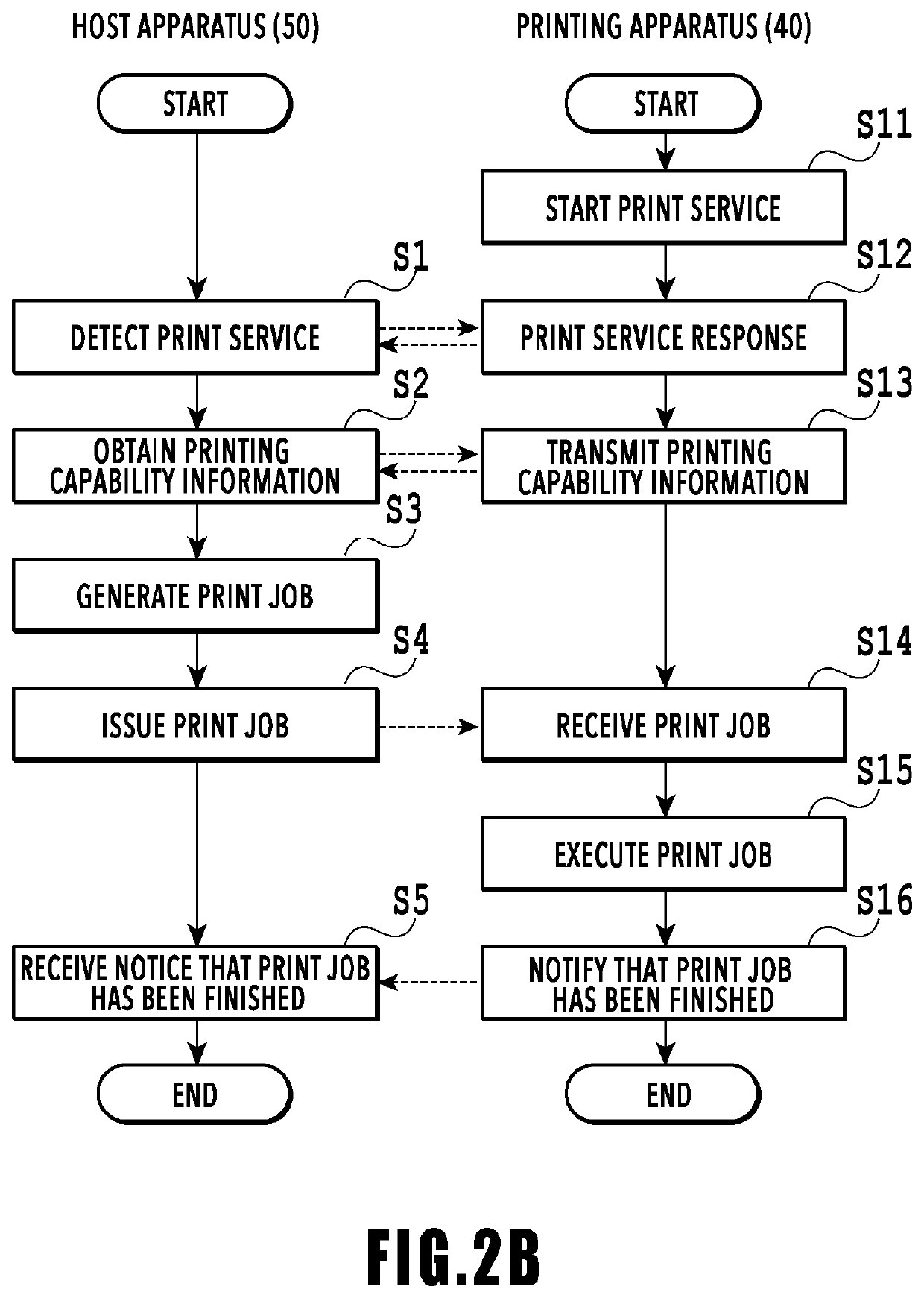Printing apparatus, printing method, and storage medium
- Summary
- Abstract
- Description
- Claims
- Application Information
AI Technical Summary
Benefits of technology
Problems solved by technology
Method used
Image
Examples
first embodiment
[0046]FIG. 1A is a cross-sectional view of an example of a thermal print medium 10. In the print medium 10 prepared in the present example, image forming layers 14, 16, and 18, spacer layers 15 and 17, and a protection film layer 13 are sequentially laminated on a base material 12 that reflects light. In printing a full-color image in the print medium 10, the image forming layers 14, 16, and 18 are usually yellow (Y), magenta (M), and cyan (C) color development layers. Other image forming layers may be combined.
[0047]The image forming layers 14, 16, and 18 are colorless before sensing heat, and develop their colors by being heated to the respective layer's particular activation temperatures. The order of lamination of the image forming layers 14, 16, and 18 in the print medium 10 can be selected as desired. In the case where the image forming layers 14, 16, and 18 are yellow, magenta, and cyan color development layers, an example of the order of lamination of those layers is the ord...
second embodiment
[0106]FIG. 8 is an explanatory diagram of colored portions in a second embodiment of the present invention. In the present example, the heat generation elements 801 to 806 are driven to generate heat on the basis of heating pulses so as to cause pixel lines 131 to 133 to develop magenta (M) and cause pixel lines 134 to 136 to develop yellow (Y).
[0107]The pixel lines 131 and 132 are caused to develop magenta (M) with the same timing as the pixel line 113 in FIG. 6 in the foregoing embodiment, while the pixel line 133 is caused to develop magenta (M) with the same timing as the pixel line 114 in FIG. 6. Also, the pixel line 134 is caused to develop yellow (Y) with the same timing as the pixel line 115 in FIG. 6, while the pixel lines 135 and 136 are caused to develop yellow (Y) with the same timing as the pixel line 116 in FIG. 6. The heating pulses are set to achieve the color development with these timings. In the present example, image processing similar to the image processing in ...
third embodiment
[0110]In the first embodiment, it is necessary to perform control to associate a plurality of pixels (two pixels in the example mentioned earlier) with each other, as mentioned earlier, so that the drive timing for the group of heat generation elements at the odd numbered positions and the drive timing for the group of heat generation elements at the even numbered positions can be shifted from each other by an approximately half pixel ( 3 / 7 pulse period). In the present embodiment, such control to associate a plurality of pixels is not necessary.
[0111]FIG. 9 is an explanatory diagram of heating pulses in the present embodiment. In FIG. 9, the upper three rows (Yo, Mo, and Co) represent heating pulses to be applied to the heat generation element at any odd numbered position (801, 803, and 805). Also, the lower three rows (Ye, Me, and Ce) represent heating pulses to be applied to the heat generation element at any even numbered position (802, 804, and 806). The heating pulses for the ...
PUM
 Login to View More
Login to View More Abstract
Description
Claims
Application Information
 Login to View More
Login to View More - R&D
- Intellectual Property
- Life Sciences
- Materials
- Tech Scout
- Unparalleled Data Quality
- Higher Quality Content
- 60% Fewer Hallucinations
Browse by: Latest US Patents, China's latest patents, Technical Efficacy Thesaurus, Application Domain, Technology Topic, Popular Technical Reports.
© 2025 PatSnap. All rights reserved.Legal|Privacy policy|Modern Slavery Act Transparency Statement|Sitemap|About US| Contact US: help@patsnap.com



